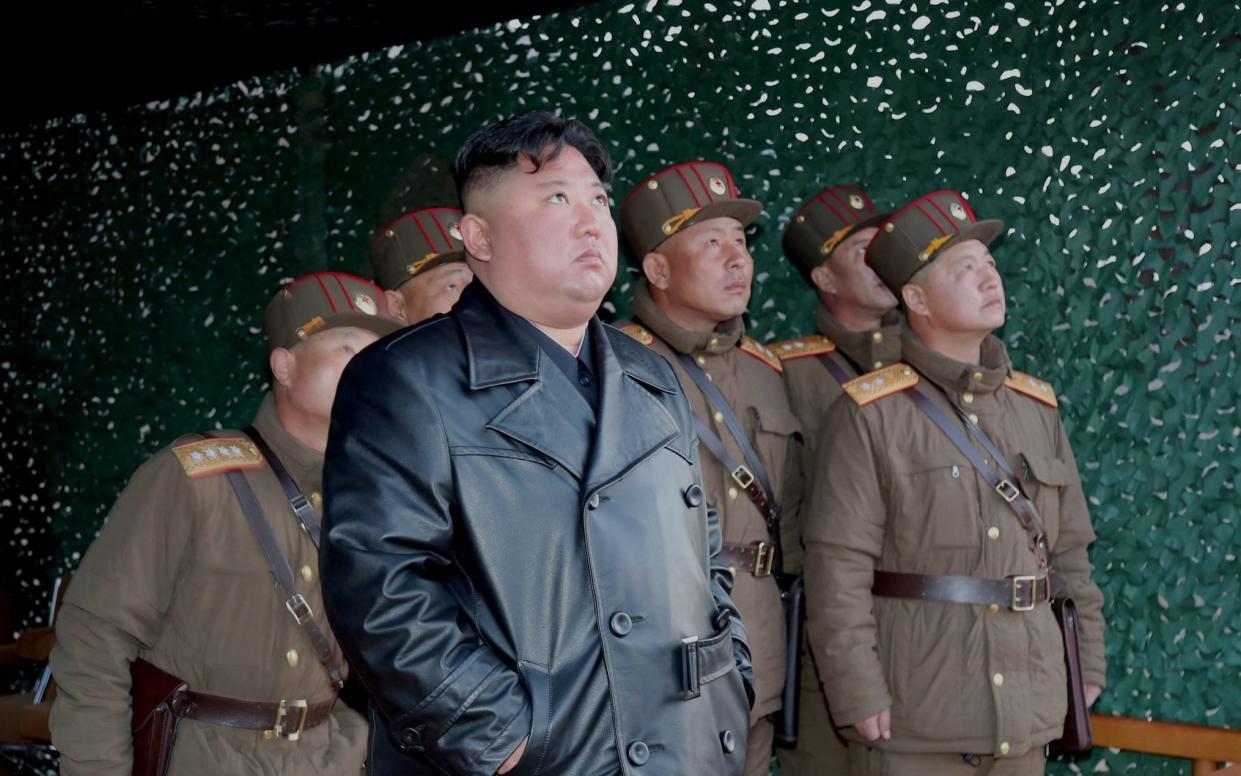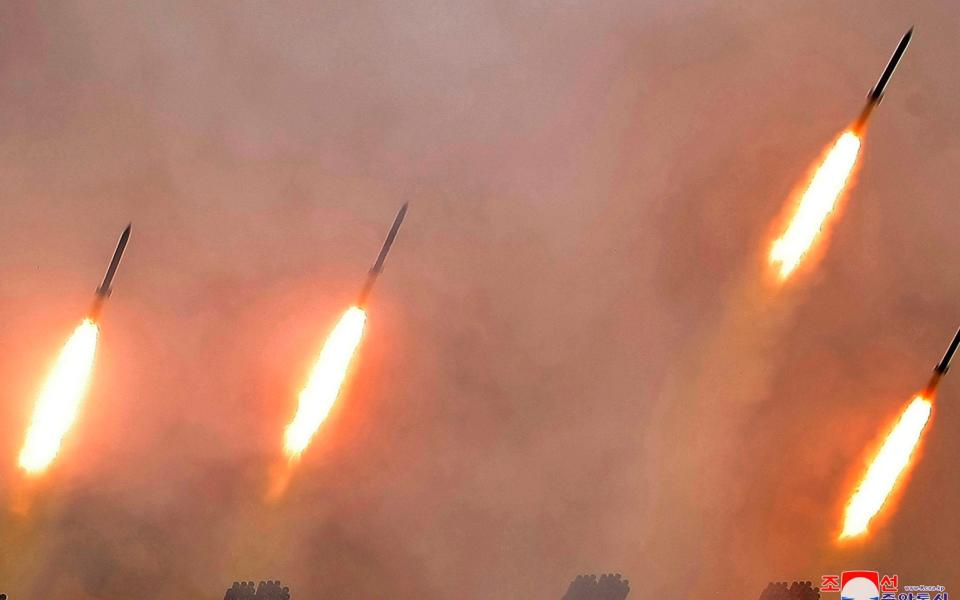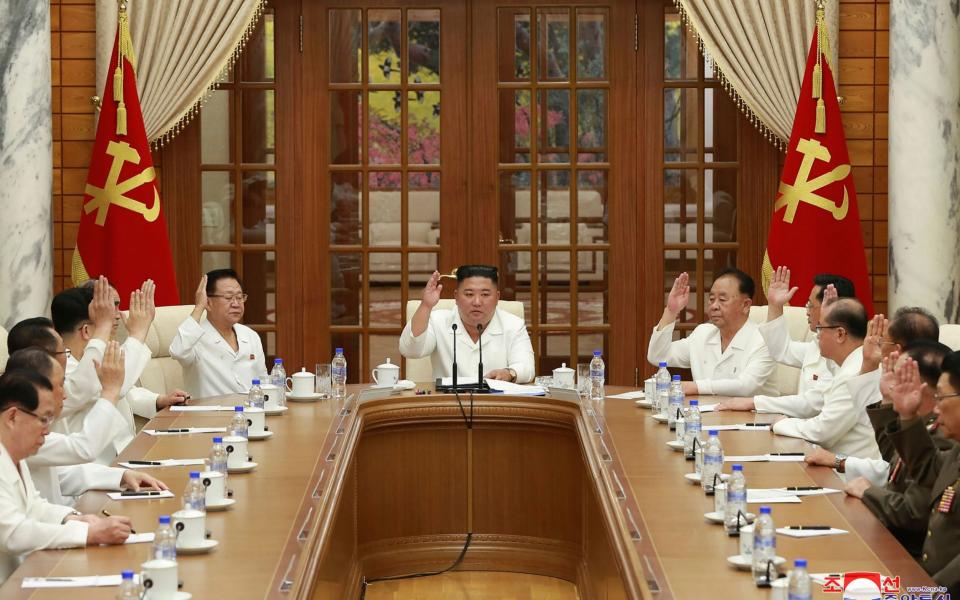China complicit in bypassing UN sanctions to launder North Korean money, report suggests

A new investigation into companies trading in the Chinese city of Dandong, on the border with North Korea, has shed a spotlight on Pyongyang’s global money laundering networks and raised fresh questions about China’s complicity in bypassing United Nations sanctions against Kim Jong-un’s regime.
“The Billion Dollar Border Town,” a report published on Friday by the Royal United Services Institute, reveals how companies in Dandong, in China’s northeast Liaoning province, have allegedly helped North Korean entities construct complex sanctions evasion networks across various jurisdictions.
Data obtained by researchers indicated a small core of 150 companies was involved in $2.9 billion worth of shipments between September 2014 and February 2017, at a time when North Korea was escalating its nuclear and weapons programmes and the UN imposed wide-ranging sanctions in response.
As a result, these 150 companies alone could have accounted for around 20 per cent of North Korea’s total reported global trade value in that time period.
“These include multiple Dandong firms being involved in coal and iron imports even as ever more stringent measures on such commodities were imposed by the UN Security Council in 2016 and 2017,” said Joseph Byrne, a research analyst at RUSI’s Proliferation and Nuclear Policy Team, and one of the report’s authors.

“Many of these shipments, worth hundreds of millions of dollars, could have been in breach of UN resolutions at the time should the key provisions not have been properly met by those importers.”
The concentration of trade between Dandong and North Korea highlights the potential economic impact sanctions would have on the reclusive regime if strictly enforced.
However, the investigation found that only 15 out of the 150 companies were listed as closed as of January 2020, while several continued to attend trade fairs in Pyongyang.
“Unfortunately, by ceasing to report shipment-level trade data, Chinese authorities have made it more difficult to determine if these companies are abiding by UNSC resolutions,” concludes the report, urging China to resume the publication of the data.
Several other sources of evidence – including official Chinese and North Korean records - indicate that sanctions breaches are continuing, and that a significant number of companies from the original dataset use addresses in an area of Dandong known to host North Korean front companies.
Further analysis suggests that some businesses have played an “important role in facilitating North Korea’s access to the international financial system and its procurement of foreign goods”.

In one example cited by the report, “the revenue raised by Dandong’s largest trading company was funneled to FTB (foreign trade bank) front companies operated by North Korean and Chinese nationals active in China and Libya”.
This finding was backed by a recent US indictment of the FTB, which detailed the alleged involvement of Dandong firms in making payments to FTB front companies linked to the bank's covert branch in Libya.
RUSI researchers believe that an individual involved in these Dandong related financial transfers may also have ties to a known North Korean arms trading company linked to the country's intelligence agency.
They also uncovered a wide network of individuals and entities operating across Liaoning province and in Libya, including a number of companies that exported large amounts of machinery and equipment to North Korea.
The discovery potentially illuminates Pyongyang’s money laundering operations, and how dollars generated by the sale of coal and other resources are redeployed and put to use by the regime.
In another example raising concerns about Pyongyang’s procurement and proliferation activities, a Dandong company which imported resources worth nearly $500 million from North Korea over the period in question, also exported goods to Iran, Syria and Myanmar.
The research, dubbed “Project Sandstone,” highlights Dandong’s apparently crucial role in Pyongyang’s procurement chain to boost the country’s nuclear weapons and ballistic missile programmes while also helping it export weapons and illicit technology abroad.
“This all raises further questions about China’s implementation of sanctions when they were imposed, to say nothing of the more contemporary breaches identified more recently in Chinese waters by our reports and by independent UN investigations,” said Mr Byrne.

